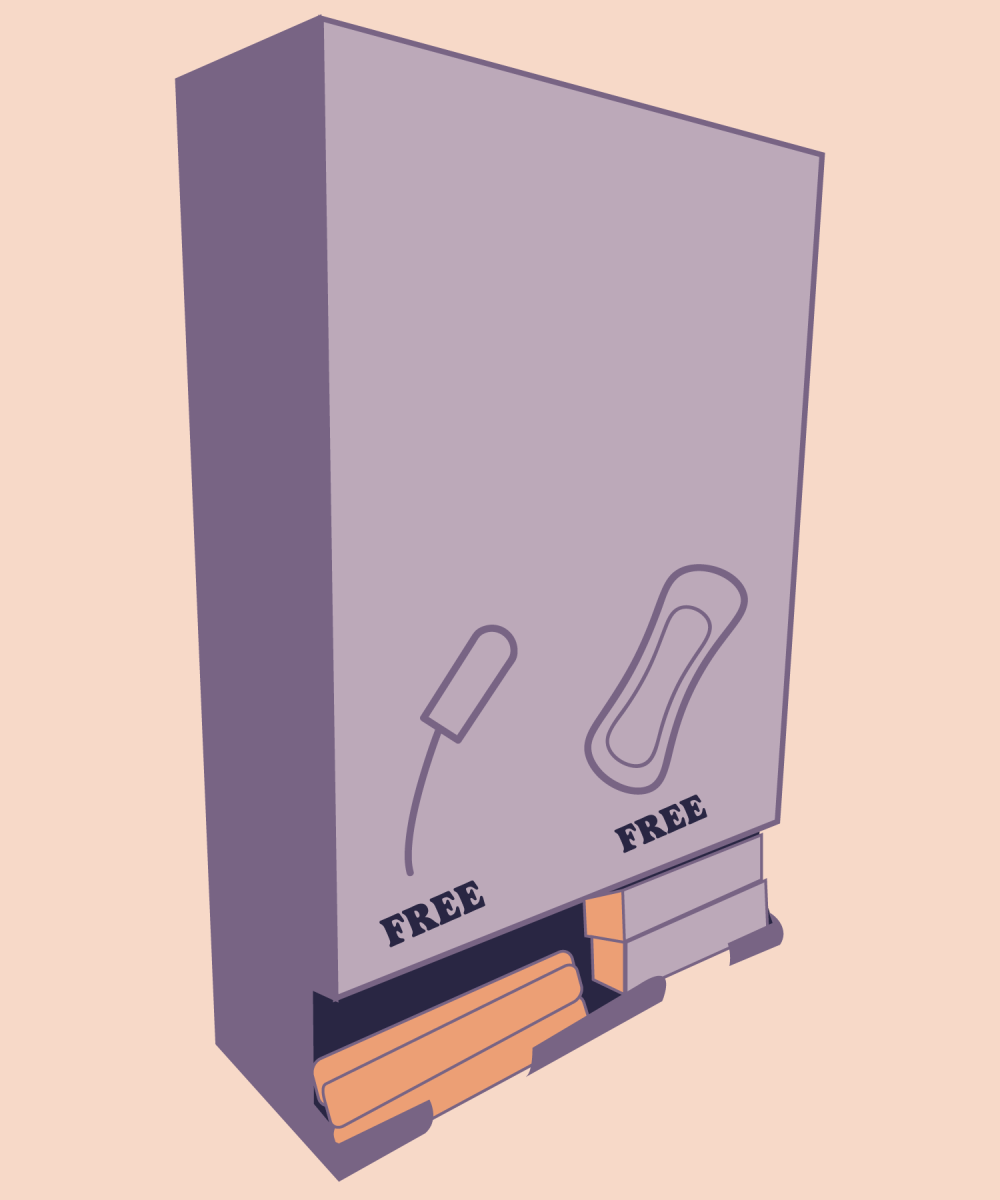There are certain human necessities public places are expected to provide. Hand soap, toilet paper and water are just some of these things. There is another type of product roughly half of the population needs at one time or another that is just as vital: feminine hygiene products.
Menstruation products are just as important and widely used, and they should be available and costless in both men and women’s public restrooms.
At any given moment across the globe, it is estimated that 800 million people are on their period and approximately 500 million of those people cannot afford feminine hygiene products.
The main factor that contributes to individuals struggling to be able to afford monthly menstruation supplies is what is known as the tampon tax. The tampon tax is the sales tax that is charged to feminine hygiene products. The reason this tax has a specific title is because there are many essential items such as prescriptions, some over-the-counter medications and condoms that are exempt from state and regional sales tax.
Period poverty means the lack of access to adequate education, supplies, and sanitary products.. Certain groups are much more likely to experience period poverty in the United States than others. Low-income and homeless individuals, queer people, incarcerated individuals and college students are all groups more likely to experience period poverty.
Women are not just more likely to live in period poverty, but in general economic poverty as well. This can be seen through the plentiful research done on the ever present pay gap. For every dollar a man was paid in 2024, 84 cents was paid to full time year-round female employees. This relates to period poverty because menstruation supplies cannot be purchased with Medicaid, food stamps, health insurance or other forms of well-fare.
On average, women in the U.S. will experience roughly 450 periods and will spend between $100 and $225 throughout their lifetime on taxes when purchasing feminine hygiene products. The lack of access to feminine hygiene products to those who are experiencing period poverty can lead to individuals using makeshift products such as toilet paper, clothes or rags, paper towels and sometimes even children’s diapers.
All of these costs are amplified when there are multiple people in a household who are menstruating. Certain issues can arise when someone is making do without sufficient period supplies such as infection on top of regular period symptoms.
Most menstruating people have dealt with a time when they had to make do with what they had at the moment, but the issue of this being a monthly reality for many people is all too true.
Throughout App State’s campus, there are many locations in and outside of restrooms where there is free access to period supplies. Most of the time these supplies are explicitly located in the women’s restroom.
In order to create a truly safe space for everyone here at App State, there needs to be menstruation products in the men’s, women’s and gender neutral bathrooms. This ensures equality for all people who menstruate no matter their gender identity and that all people who need access to safe, clean and free period hygiene products are guaranteed that, just as they are provided with water and toilet paper.




S.Arnholt • Sep 10, 2024 at 7:13 am
The .84 to 1 ratio of pay is an uncontrolled pay gap. Kindergarten teachers do not command the same salaries as orthopedic surgeons, but male & female kindergarten teachers are paid similarly as are male & female orthopedic surgeons. Please take a statistics class & study Simpson’s paradox before perpetuating deception.
Also, someone pays for everything. There is no “free.” Someone bought the soap & toilet paper, and someone pays the water bill for bathrooms. Why should someone, other than the person who benefits, be required to buy period supplies?
MuChao • Sep 14, 2024 at 10:42 am
“Why should someone, other than the person who benefits, be required to buy period supplies?”
Because this is literally part of the foundation of a functioning society. We pay taxes, we pay for services, sometimes for things which do not *directly* benefit us, but may benefit others and sometimes society as a whole. This toddler-level thinking, libertarian nonsense gets tiresome.
Furthermore, I’ve never seen you on here complaining about the fact that students are forced to subsidize the majority of the $20+ million in financial losses incurred by Athletics each year through student fees, a program that only a few benefit from. Why should Athletics not be forced to receive 100% of it’s funding via ticket sales and merch, so that only those who benefit pay? But let me guess: “that’s different.”
Gloria • Sep 9, 2024 at 3:27 pm
Great article! The statistics on how much menstrual tax adds up to over the course of one’s life was very eye-opening — and a little scary